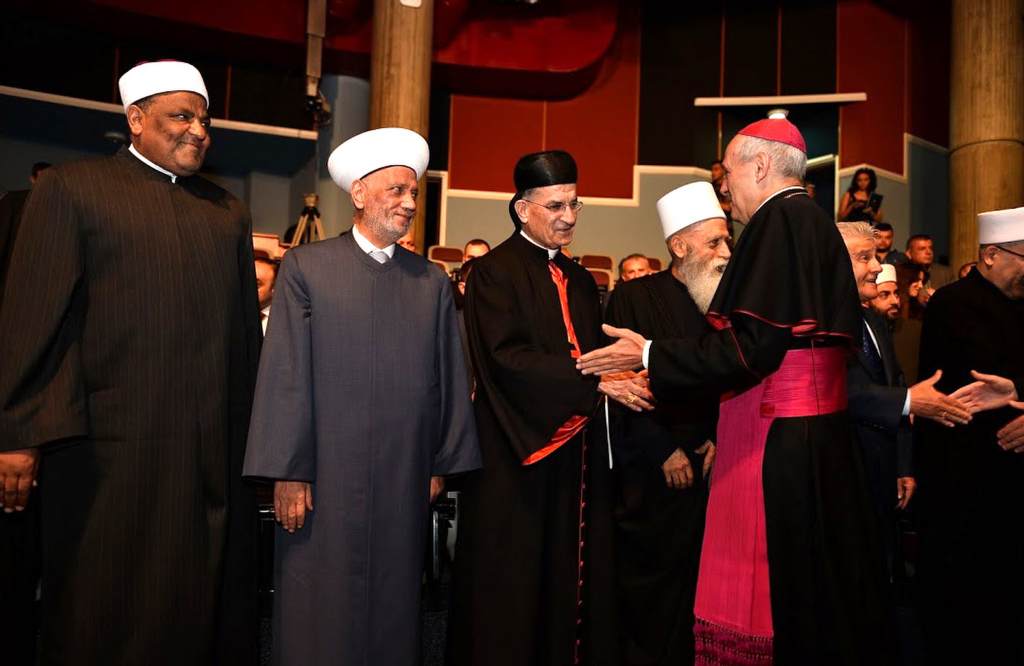A little-noted event took place in Vatican diplomacy this month that could have a big effect on how the Church faces the international challenges of 2020.
Italian Archbishop Gabriele Giordano Caccia officially took up his role as permanent observer of the Holy See to the United Nations in New York, although it was announced last fall that he was replacing Philippine Archbishop Bernardito Auza in the role.
The Vatican, officially known as the Holy See in diplomatic parlance, is not a member of the United Nations, but a Permanent Observer State, which gives it the right to participate in the debates and meetings of the organization.
Archbishop Caccia’s term is going to get off to a quick start. In March, there’s the annual meeting of the Commission on the Status of Women. Every year, the Holy See has to negotiate the minefield of gender and reproductive rights language. This year will mark the 25th anniversary of the U.N.’s Fourth World Conference on Women in Beijing.
The Holy See delegation to that conference, led by Harvard Law School professor Mary Ann Glendon, who went on to become the U.S. ambassador to the Vatican under George W. Bush, led the fight to make sure “new rights” (e.g., to abortion) were not included in the final document.
These issues will come up again in March, and the U.N. will see how Caccia handles the debate.
Another issue Archbishop Caccia will have to face is the ongoing situation in the Middle East.
The primary concerns of the Holy See are establishing peace in the region, and protecting religious minorities, including Christians.
In the Holy Land, the Vatican is firmly committed to a two-state solution, while at the same time seeking international guarantees for the holy sites in Jerusalem.
The conflict in Syria and Iraq, where some of the oldest Christian communities in the world are threatened with extinction, is also an area the Holy See hopes the U.N. takes a more active part in resolving.
Later this year, the 2020 United Nations Climate Change Conference will take place in Glasgow, Scotland. Pope Francis’ ecological 2015 encyclical was written to influence the Paris meeting, and the fight against climate change has become a growing portfolio for the Holy See’s U.N. mission.
The Vatican would also like to see the implementation of the U.N. migration pact passed a year ago, with the strong backing of Pope Francis. The pact aims to help countries cooperate to deal with the greatest migration crisis since the end of World War II, but it lacks the support of several countries, including the United States, Australia, and Italy.
In tackling these issues, the Vatican has to deal with certain realities of multilateral diplomacy, mainly that its friends are only friends if it suits their interests.
A good example would be the relationship between the United States. Archbishop Caccia will probably be able to count on the Trump administration to help in the fight against adding abortion rights language to U.N. documents, but will not have Trump’s support in helping refugees.
These dynamics can change with one election; with a Democratic administration, these positions might easily be reversed.
Liberal governments praise Pope Francis when he talks about the environment, but are less enthusiastic when he condemns gender theory.
For the Vatican’s mission to the U.N. — which is miniscule compared to the delegations from member states, and even some NGOs — this means the permanent observer has to be able to make the Church’s position clear, while at the same time be able to work with delegations on common issues, even if they are strongly opposed to the Church on other things.
Archbishop Caccia’s diplomatic experience will help him. His last post was as papal representative to the Philippines, the Catholic heartland of Asia.
However, he has served during the presidency of populist President Rodrigo Duterte, who has been vocal in his opposition to the country’s bishops, and before his election called Pope Francis a “son of a bitch” for causing traffic jams during his 2015 visit to the Philippines.
Before that, he represented the Vatican in Lebanon, where Maronite Catholics, Shia Muslims, Sunni Muslims, and the country’s other religious communities have a delicate balance of power.
In both countries, Archbishop Caccia was able to negotiate the delicate path of quietly promoting the Church’s interest without sparking any diplomatic problems.
When Archbishop Caccia’s appointment was announced last November, the archbishop noted the U.N. is about to mark its 75th anniversary and laid out his vision of his job.
“I look forward to helping the Holy See assist the United Nations in renewing its commitment to the pillars of its charter, preventing the scourge of war, defending human dignity and rights, promoting integral development, and fostering respect and implementation of international law and treaties,” he said.
He will have a busy year ahead of him.

